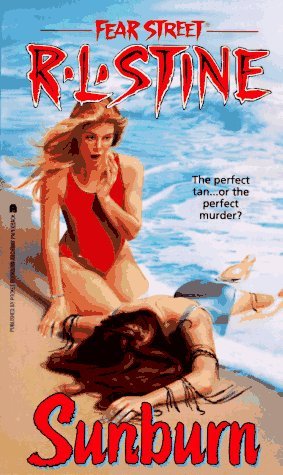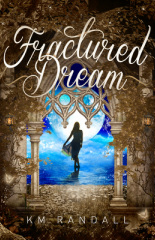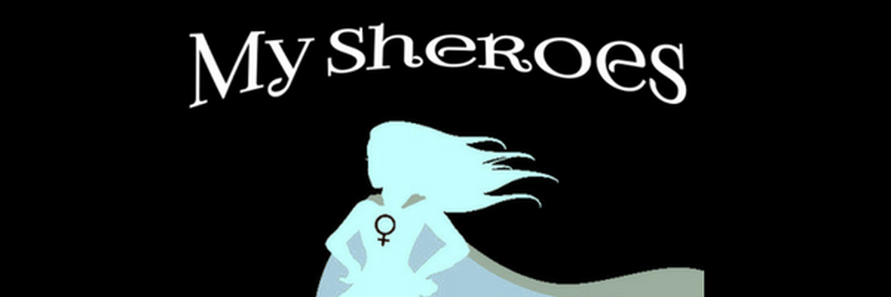Boxing up Fear Street1/24/2015  I've hit the book jackpot. Or at least it seems that way as I get underwayredecorating my office. Battered bookcases now gleam new and white, while piles and piles of books are there for the reading. I always dreamed of a huge library someday, featuring every book I ever owned. The truth is, I tried that in my office and it's been a perpetual disaray as bookshelves were doubled up on and books were crammed in as tight as they could go. So I put my foot down in the name of decluttering in this newly brightened space. I forced myself, as painful as it was, to put the R.L. Stine Fear Street books into a box. Yes, I'm really that much of a book hoarder. I cut it off at putting Babysitter's Club on my shelves — I have all the books still, though, but they're rightfully in boxes — but anything I read from my early double digits and up was fair game and could have been found on my shelves up until the other day. My large V.C. Andrews collection also went into that box along with Stephen King and Anne Rice. I still love them, but I've been over my horror phase for a long while. I will not be re-reading Gerald's Game, which I read when I was around 12 and have been traumatized since. I have to give Stephen King credit, the images are still clear as day in my head. Likewise for Anne Rice, I still shudder at some of the scenes she painted in Taltos and I was a young teenager when I read that as well. Meanwhile, I have a whole series of books in there I have no recollection of ever reading. But that's the fun part! Because I can re-read them and it's as if I've got brand new books to devour. Books that made the shelf cut are my fantasy collections, anything by Alice Hoffman, Neil Gaiman, and Tanya Huff, my chicklit, and any non-fiction (Bill Bryson, you make me laugh so) and literature. And of course any newer YA, House of Night, Harry Potter, Morganville Vampires, etc. And there's more. A lot more. That brings me to the hardest part, when I made myself put my Christopher Pike books in that box. While most of his earlier stuff was just really good teen horror, I feel to this day that a lot of his later books were brilliant. There was a lot of science-fiction and spirituality threaded through his later works that I remember really connecting with as a teen looking for YA that was a little deeper. It's been a long time since I read them, but I'm thinking when I have some reading time open up that I might do a special series on re-reading Christopher Pike books. Were they as great as I remember them? A friend of mine recently read a couple of the books from his Last Vampire series and said she was disappointed by it because she felt he didn't portray a feminine viewpoint or voice well. So I'm interested to see what I think of these books in my mid-thirties. I consider them a guilty pleasure given I read them when I was an adolescent and again in my twenties and plan to read them now in my thirties. I'll have to Wickipedia that man and see if he's written anything new. Until next time, happy reading!
0 Comments
Fractured Dream Book Trailer8/13/2014 My talented and amazing sister put together this awesome book trailer for Fractured Dream. It's got exactly the epic feel that the book has. I hope you enjoy! Thoughts on Poetry7/6/2014  I've read a lot of poetry lately from fellow writers floating around on Facebook and authors' blogs. I used to be really into it when I was a teenager and even in my early twenties. But at some point it became less of a focus, or else I just lost my knack for it. But I've always loved to read it. I have books that belonged to my mother and my grandfather before her, that I'd sit with, endlessly flipping pages and trying to find the perfect poem to describe a mood or situation. A lot of angst-ridden teens, or even those without the angst, tend to get in on the moody word play that can be so satisfying in the art of poetry. I honestly haven't written a poem in years at this point except to have put together a prophecy for my novel, Fractured Dream, and that sort of writing is kin to poetry. But I thought I'd share one I wrote when I was 20 or so. This was after my first love broke my heart and I was left picking up the grainy pieces. And then the second is just my favorite poem from when I was younger. I used to read it over and over. It's about death, which is morbid, but it's also about endless love. And I think that's what I liked best about it. The poem by me is called I Loved You Last. I actually had it published in some book at the time, but it was one of those set-ups where you sent in a poem and, to actually get a published copy of it, you had to spend $20 or so to buy the hardcover book, which in this case was called The Brilliance Of Night: The International Library of Poetry. I don't really think they were too discerning about who they put in the book. What can I say, I was young, naive and broken-hearted . . . I do have the book though. It sits on a shelf beneath my coffee table, although the cover is by now pretty worn. I did get to show the boy in question some years later the poem I had written after he'd so effectively torn my heart asunder. But by then, I was of course beyond the apology that was issued, although it was appreciated. Hearts break all the time and sometimes poetry is borne from it. I've since found two loves of my life, my husband and son, so this poem is just a blast from the past, but the heart healed long ago. You can be the judge of whether it was bad or good. I Loved You Last Do you remember when we first sat there and you told me you loved me? My gaze drifting away uneasily as I slightly smiled and said, "Thank you." And you claimed you'd love me until the end of eternity, and that roses would never smell so sweet, and that the sun would never burn so hot, and the wind would never feel so right if I wasn't there. Do you remember when I first started to love you, when your smile shone from the depths of your soul and I couldn't help but fall, my "thank yous" stopped and "I love yous" began? It somehow seemed at the end that it was I that loved you more, and the irony has fallen deeply on me since you've gone away, for the snow is not as fresh, nor the autumn leaves as beautiful, nor the night's deep stillness as mysterious since you've gone away. You loved me first, but I loved you last. *** Now, reading the below poem, I remember why I liked it so much as a teenager. One, I think I was really into the fact that she had dark brown hair, like me, and thin lips, also like me. I was self-conscious at the time that I didn't have the lush, full lips of all the girls in the books I was reading, or the movies as well as some of my actual friends. Second, I was fascinated with death, the afterlife. At that time in my life, my one friend and I had weekly sessions with the Ouija Board. And of course, finally, this poem is also a love story. I'm not the same teenage girl, but I do still love this poem. I like it now because I like what it says about living beyond death (my aging self likes to believe there's something beyond), and that love never dies, which my now-jaded spirit can still get in line with. I'm a writer after all. He and She "She is dead!" they said to him; "come away; Kiss her and leave her—thy love is clay!" They smoothed her tresses of dark brown hair; On her forehead of stone they laid it fair; With a tender touch they closed up well The sweet thin lips that had secrets to tell; About her brows and beautiful face They tied her veil and her marriage lace; And over her bosom they crossed her hands, "Come away! they said; "God understands." And they held their breath till they left the room, With a shudder, to glance at its stillness and gloom. But who he loved her too well to dread The sweet, the stately, the beautiful dead, He lighted his lamp and took the key And turned it—alone again, he and she. He and she; yes she could not smile, Though he called her the name she loved erewhile. He and she; but she would not speak, Though he kissed, in the old place, the quiet cheek. He and she; still she did not move To any one passionate whisper of love. Then he said: "Cold lips and breast without breath, Is there no voice, no language of death, "Dumb to the ear and still to the sense, But to heart and to soul distinct, intense? "See now; I will listen with soul, not ear. What was the secret of dying, dear? "Was it the infinite wonder of all That you ever could let life's flower fall; "Or was it a greater marvel to feel The perfect calm o'er the agony steal? "Was the miracle greater to find how deep Beyond all dreams sank downward that sleep?" "Did life roll back its records, dear; And show, as they say it does, past things clear? "And was it the innermost part of the bliss To find out so, what a wisdom love is? "O perfect dead! O dead most dear, I hold the breath of my soul to hear! "There must be pleasure in dying, sweet, To make you so placid from head to feet! "I would tell you, darling, if I were dead, And 't were your hot tears upon my brow shed-- "I would say, though the Angel of Death had laid His sword on my lips to keep it unsaid. "You should not ask vainly, with streaming eyes, Which of all deaths was the chiefest surprise, "The very strangest and suddenest thing Of all the surprises that dying must bring." Ah, foolish world! O most kind dead! Though he told me, who will believe it was said? Who will believe that he heard her say, With the sweet, soft voice, in the dear old way; "The utmost wonder of this—I hear, And see you, and love you, and kiss you, dear; "And am your angel, who was your bride, And know that, though dead, I have never died." --Sir Edwin Arnold  A friend of mine and I were recently talking about the launch of my debut novel, Fractured Dream. He went on to say that he's never known an author before and began to reminisce: "I always blanched at my English teachers who talked about symbolism and shite in One Flew Over the Cukoos Nest or Slaughterhouse Five or the Great Gatsby or the Catcher in the Rye. Now I can actually ask the author, what did you mean by that, and you can say, nothing, nothing at all." He has a point. I remember college discussions breaking down piece by piece various authors and their books. What did they mean by that? What did this object in this scene convey? What did it represent? I took a class, titled Witchcraft, when I was probably in my second year. It was an honors class in which we learned about the European witch trials as well as the original fairytales. And I remember thinking as we discussed phallic symbols (and there were a lot of them), did the writer really mean to pepper their prose with penis-shaped objects or clouds, or what have you, to symbolize masochism? Was there really a thought process behind it all? There very well could have been, but it does seem as if the readers and thinkers who came later perhaps pushed agendas onto whole pargraphs that were merely meant to be description or backdrop to the setting of a scene. My friend continued to note how he'd gotten into an argument with a teacher in high school over a scene where Randle Patrick McMurphy, the main character in One Flew Over the Cukoos Nest, flicked a low hanging Halloween decoration of a bat with his fingers. and she told his class it symbolized evil and his aversion to it. My friend's comment: "And I'm like wait, 'I see a low hanging something anywhere and I just hit it for no reason. Isn't it possible that it symbolizes nothing?' She would have none of it." This is not to say that writers don't have agendas, because they most definitely do. The Jungle by Upton Sinclair and Uncle Tom's Cabin by Harriet Beecher Stowe are just two examples of literature that was also a social commentary on the inhumane treatment of fellow human beings. And these novels helped to change the world. Even fantasy can have overarching elements. I've read before that JRR Tokien's The Lord of The Rings was influenced in part by his dislike of industrialism. But, sometimes description is just that. Description. I write fantasy, so first and foremost, I write for entertainment, to give people the mode to escape by discovering new worlds, by allowing people to revel in the magic of a new reality. That's not to say there aren't underlying themes, which if you paid enough attention to you could catch: class/racism, environmentalism, religion, cosmology and of course, loyalty, self-discovery, sacrifice, taking responsibility for one's actions and love. I also often assign names to my characters that gives some insight to their personality or inner nature, and in doing so giving more meaning to their presence within the book. Indeed, context and depth are important elements in my writing. But the rock, Story, my main character, picks up to skip across the water while lost in thought? It's just a rock. And that bat was probably just a bat. A fellow author and friend gives some insights into the use of symbolism in her own writing. She notes that although she believes a lot of times it happens on a subconscious level, using symbolism can also be a great writing tool. Check it out here at Thayer's Grey Matter.  I can't believe the day is almost here when I'll finally get to see my book on sale and in print. In three days, on Saturday, Fractured Dream (The Dreamer Saga) will go live. But I think it will be most real for me when I hold it in my hands. Thank you to everyone that helped me get here, and to all those reviewers out there giving my book a presence. Saturday is a day to celebrate, not only it is my son's third birthday, but it's the birth of my book on the market. Nine years ago the seed of an idea was planted in my head. It took me eight years to finish it, and now almost nine to see the idea come to fruition into a published book. And now it's here. But my desire to be a published author has always existed, from the first scribblings of poetry when I was six, in my hunger for reading, and for the many books begun but never finished. It's been a long journey, and it's not done yet. I've got two more books in this series and another book I'm working on right now, with many more stories knocking around in my head. This time it won't take me eight years. And I can't wait to give them all life. Thanks again to everyone and also to my current and future readers. Those who would criticize reading as a way to escape must never have experienced the beauty of finding comfort, enjoyment and solace in being taken away by an incredible story. Who doesn't need to escape once in a while? Reading is by far one of the most healthy forms of escapism. I I hope I can do for my readers what so many writers have done for me, which is to allow me to escape to new worlds and ideas. AuthorK.M. Randall writes fantasy and paranormal for both a general and young adult audience. Her debut novel, an epic fantasy called Fractured Dream, launched in June 2014, and her second book, The Reaper's Daughter, launched May 2015. Randall also published Fairytale Lost, a prequel to Fractured Dream, as an exclusive on Wattpad. She blogs about dreams, female heroines, and activism and its relevancy to the literary and fictional world. And when in the season, sometimes she just likes to talk about Halloween. She is currently hard at work on the second book in the Dreamer Saga series, Shattered World. Archives
February 2022
Categories
All
Categories
All
|



 RSS Feed
RSS Feed
